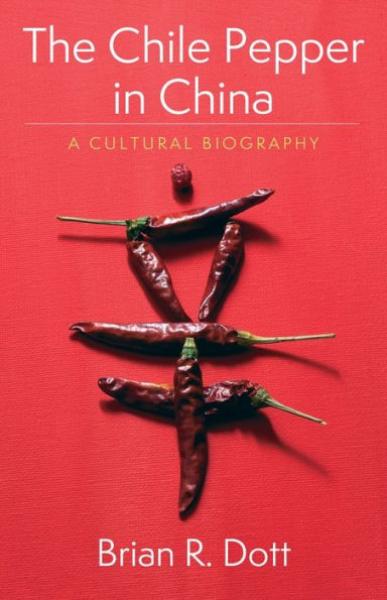Description
Brian R. Dott explores how the nonnative chile went from obscurity to ubiquity in China, influencing not just cuisine but also medicine, language, and cultural identity. He details how its versatility became essential to a variety of regional cuisines and swayed both elite and popular medical and healing practices. Dott tracks the cultural meaning of the chile across a wide swath of literary texts and artworks, revealing how the spread of chiles fundamentally altered the meaning of the term spicy. He emphasizes the intersection between food and gender, tracing the chile as a symbol for both male virility and female passion. Integrating food studies, the history of medicine, and Chinese cultural history, The Chile Pepper in China sheds new light on the piquant cultural impact of a potent plant and raises broader questions regarding notions of authenticity in cuisine.
Brian R. Dott explores how the non-native chile went from obscurity to ubiquity in China, influencing not just cuisine but also medicine, language, and cultural identity. The Chile Pepper in China sheds new light on the piquant cultural impact of a potent plant and raises broader questions regarding notions of authenticity in cuisine.
A valuable resource for anyone interested in Chinese culinary culture or the global history of the chilli as symbol -- 'vitamin, vegetable, preservative and spice'. Dott's research is extensive, while his writing is entertaining, digestible and peppered with much fascinating information.--Fuchsia Dunlop "Spectator "
It all adds up to a compelling case for how a foreign plant became a national spice.--Economic Times
The definitive English-language study of how the pepper arrived in China, how it became part of local cuisine and medical practice, and how it even established itself as a core part of identity formation in southwest China. But one of its most provocative contributions has little to do with China and everything do with the chili pepper's unique relationship to globalization.--The Cleaver and the Butterfly
A satisfying history to [chiles] origins as well as their cultural significance in China.--Asian Review of Books
A book that can be easily understood and enjoyed by casual readers, something not all academic non-fiction books can say.--Jason Flatt "But Why Tho? "
A learned as well as lively book with many surprises. How chile peppers came to China from the New World just starts a story involving taste, regionalism, adaptation, and folklore. Chiles were key to Chinese cuisine's subtlety and variety, and not just in Sichuan and Hunan either.--Paul Freedman, author of Food: The History of Taste and Ten Restaurants That Changed America
Extensive source materials in both Chinese and English form the bedrock for this impressive study into how a relatively unassuming American import so radically changed one country's cuisines and traditional pharmacopoeia. The history of the humble chile in China is a fascinating one, especially as viewed through Brian R. Dott's affectionate yet scholarly lens.--Carolyn Phillips, author of All Under Heaven: Recipes from the 35 Cuisines of China
This is an absolutely wonderful book. It combines scholarship and good food writing--the enormous amount of effort in compiling the databases is duly and modestly cloaked in good prose.--Eugene Anderson, author of The Food of China
Product Details
- Columbia University Press Brand
- May 12, 2020 Pub Date:
- 023119532X ISBN-10:
- 9780231195324 ISBN-13:
- 296 Pages
- 8.6 in * 5.5 in * 1 in Dimensions:
- 1 lb Weight:




